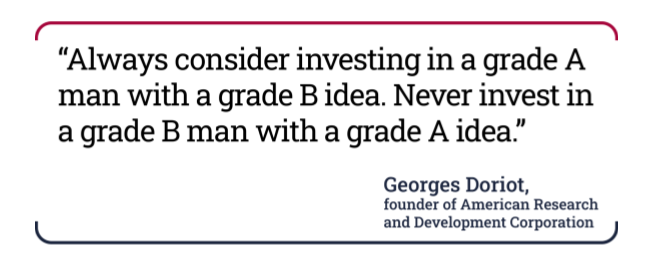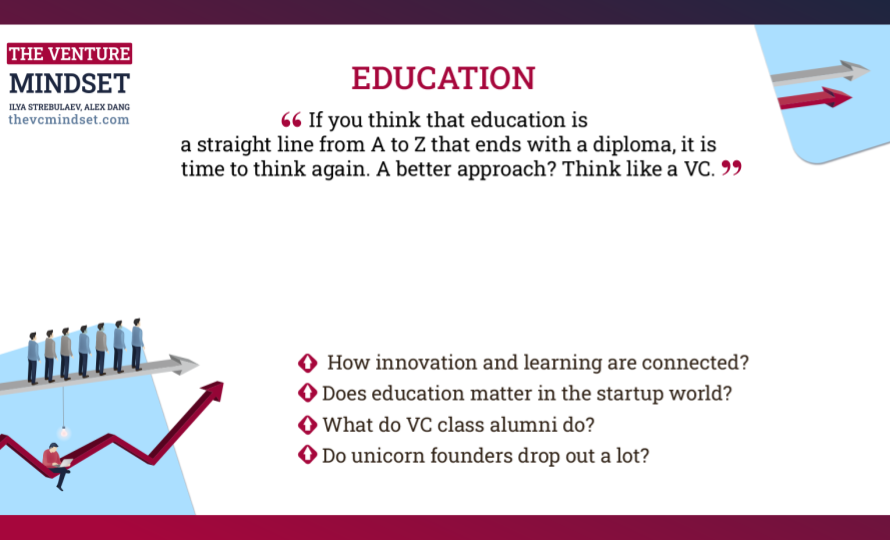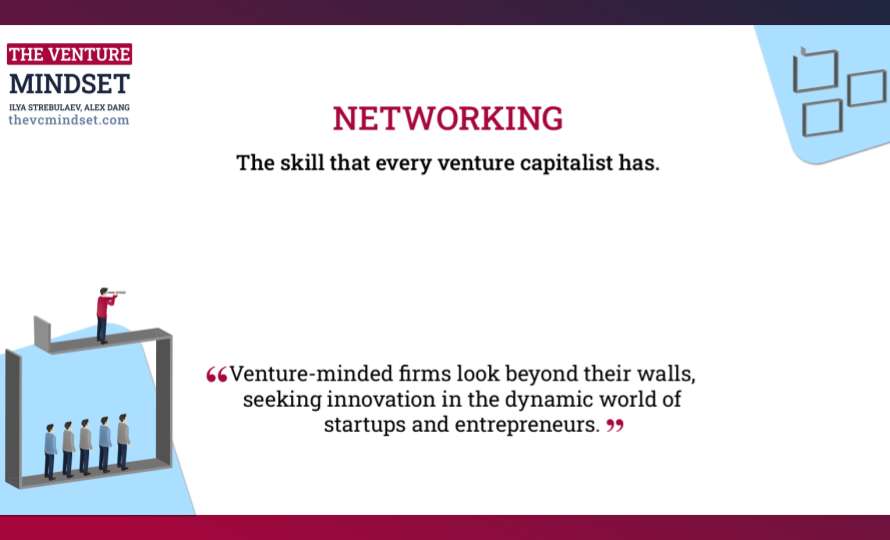What’s the biggest key to success for an early-stage startup or a new corporate venture? While factors like market, funding, product, and even luck certainly influence outcomes, if we were to choose the most critical element, it would undoubtedly be the team. So let’s dive into that topic today.
TEAM
Venture building is a team sport. To succeed, the founding team must scale quickly from a one-man show to a larger organization. Some VCs even prefer to invest in startups with two or three co-founders rather than just one. They also pay attention to who else is a part of a founding team besides the co-founders. However, if your team is too big, that may also trigger some alarms. Why? Read below.
Receive The Venture Mindset newsletter first. Subscribe now
1. From the classroom: what matters to VCs?
Does the team matter to VCs? Or do they pay more attention to the business model or the market potential? Here is evidence from a survey of a thousand venture capitalists.
In selecting investments, VCs place the greatest importance on the management/founding team. 95% of investors consider the team an important factor, and almost half of them named the team as the most important one.
Half of the investors selected various other factors, such as the business model, product, and market, as the most important one, but the team factor was the leading choice by far.
Here’s one piece of advice we give all entrepreneurs: don’t hide the slide about your co-founders, advisers, and team members at the very end of your pitch deck. VCs will pay much more attention to this slide than you may expect. And if the team page is not powerful enough to start your pitch with, then perhaps you should consider rethinking your team.

2. How many founders make a good team?
One of the most frequent questions Ilya hears from Stanford University students working on startups is this one: What is the optimal number of startup co-founders?
This is a tough question, as there are so many factors in play. Here is what we have learned from our study of unicorns.
About 80% of unicorns have more than one founder. Having two or three co-founders is most common, and just 7% of unicorns have more than four.
A small number of unicorns do have many co-founders, however. Palantir Technologies has 5, Fair.com 6, ThoughtSpot 7, Hortonworks 8, Wheels Up 9, and Juno Therapeutics, Inc. has 10! You can read more here.

3. The quote

VCs know very well that ideas are abundant; it’s the execution of the idea that counts. Numerous teams might pursue the same brilliant idea, yet only a few will triumph. With early-stage startups, you can expect multiple pivots; hence, betting on the idea may be smart, but investing in the team is smarter.
4. Innovation starts with a small team, not a big budget
In the startup and VC world, the importance of the team is paramount, but what about traditional organizations? Here, the approach often diverges. In many cases, after lengthy debates, the business plan gets the green light, and only then are the team and its leader chosen. Are you surprised that many such ventures fail?
Innovative companies such as Amazon, Apple, and Google adopt a VC-like strategy for launching new ventures. They prioritize selecting a leader capable of driving success, followed by allocating a modest budget to explore and pilot with a nimble team. If it works, the team expands, but the business won’t take off without a strong founding team.
These pioneering tech firms understand that initially, smaller teams are more effective because they facilitate better communication, faster response times, and heightened individual motivation. Amazon’s “two-pizza team” concept is a prime example, where the team’s optimal size is defined by the number of members that two pizzas can feed—typically no more than eight. This size not only ensures efficiency but also fosters greater accountability and minimizes blame shifting, significantly enhancing the likelihood of discovering groundbreaking ideas or swiftly pivoting to new endeavors.

5. A peek into the book
“If you want to go fast, go alone; if you want to go far, go together,” according to an African proverb. Paul Madera, the cofounder of Meritech Capital Partners, carefully observes startup cofounders making their pitch, monitoring who is talking and how others react. For Madera, if one person dominates while others sit with sullen expressions, that’s an inauspicious sign. He frequently rejects deals when he finds founders’ interpersonal dynamics problematic. Too many traditional organizations hope that a single person from a large tech company can make the difference. A single person cannot. You need a team. By bringing multiple people with a new mindset in, you can kickstart innovation. Innovation is a team sport indeed.
More interviews and insights from VCs you can find in our book (available for pre-order)
Final thought
Recognizing the importance of a team is one thing; experiencing its impact firsthand is entirely different. TDK Ventures, the corporate arm of the large Japanese corporation TDK, sought to delve deeper into “The Venture Mindset,” exploring how VCs make decisions and the keys to improved decision making.
TDK Ventures held this workshop not just for the president or a few senior leaders, but for the whole team! They understand that the team matters, and you can feel it right away when you enter the room. They work, learn, and innovate as a team. Spending a day with them was a really enjoyable and energizing event. Thank you, TDK Ventures team!

Stay venture-minded!
Ilya Strebulaev and Alex Dang
P.S. If you missed the previous edition of the newsletter about Patience, you can read it here.


